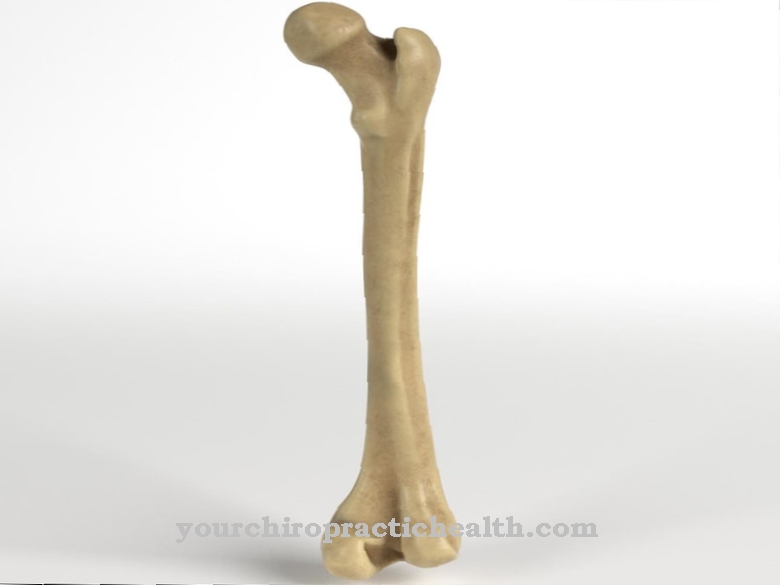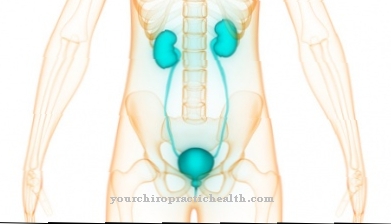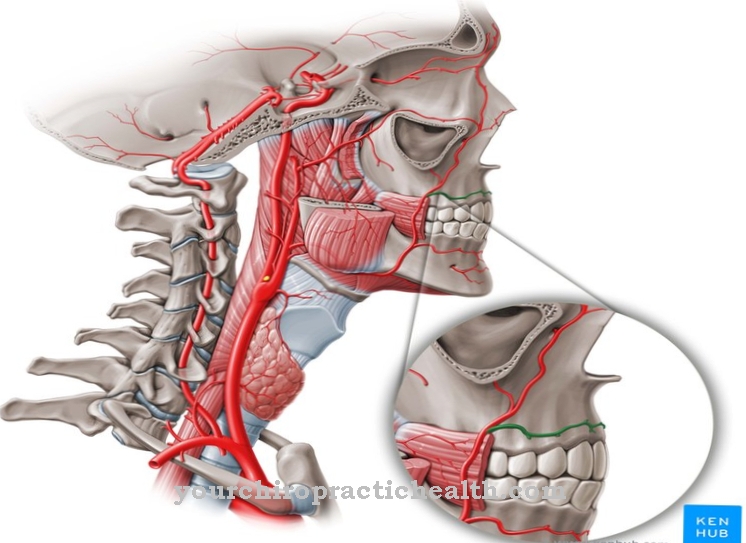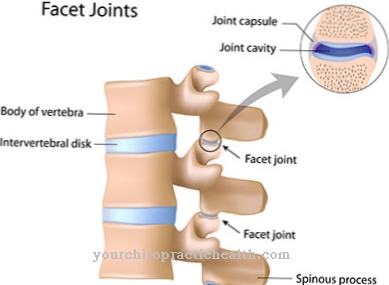Almasilat can bind excess stomach acid and is used to treat acid-related stomach problems, heartburn, and stomach and duodenal ulcers.
What is Almasilat?

Almasilat is an active ingredient that is used to treat acid-related diseases of the stomach or esophagus, whereby the drug is mainly prescribed for gastritis (inflammation of the stomach lining) and heartburn.
It is an aluminum-magnesium silicate and belongs to the group of acid inhibitors. Almasilat is also known as a so-called layered lattice antacid and has a characteristic crystal structure. By taking Almasilat gastric acid is bound and made harmless to the mucous membrane of the esophagus (esophagus).
Pharmacological effect
Almasilat is an acid-binding agent and reduces the concentration of stomach acid, which can alleviate symptoms such as acid belching, stomach pain and heartburn. Heartburn occurs when aggressive stomach acid flows back into the esophagus, which can cause tissue damage.
The stomach acid then flows back when there is a dysfunction of the sphincter muscle. In addition, heartburn also occurs as a result of delayed gastric emptying or overproduction of gastric acid. A backflow of stomach acid can also occur during pregnancy, as the unborn child often pushes the stomach upwards. Most of the time, the symptoms worsen when exercising, lying down, drinking coffee frequently, or smoking.
Stomach acid contains positively charged protons, while acid-binding agents such as almasilate have negatively charged components that neutralize the positive protons. The acid is thus balanced due to the basic reaction.
Medical application & use
Almasilat can bind harmful bile acids that might otherwise get into the stomach from the intestines. The active ingredient also has a mucosal protective effect. Together with stomach acid, salts are formed which are poorly soluble and which are excreted in the stool. In addition, they reduce the risk of ulcers in the stomach or intestines due to over-acidity.
Almasilat is available without a prescription. However, if the stomach problems last longer than 14 days, it is advisable to consult a doctor. If Almasilat is taken over a longer period of time, the aluminum level should also be checked regularly. Almasilat is used for acid-related diseases such as gastric and duodenal ulcers or heartburn. 1000 milligrams of the drug should be taken up to four times a day after meals or before going to bed. Children and adolescents under 12 years of age should not take the medicine, as there is little experience with this age group.
You can find your medication here
➔ Medication for heartburn and bloatingRisks & side effects
The following side effects may occur when taking Almasilat:
- Nausea, vomiting, constipation (constipation), diarrhea, flatulence, ileus (bowel obstruction)
- increased levels of magnesium and aluminum in the blood
- Phosphate deficiency and in this context also cramps, loss of appetite, paresis (paralysis) or bone pain
- Cardiac arrhythmias
Almasilat must not be taken if you are hypersensitive to the minerals magnesium and aluminum or if you are allergic to the active ingredient. In addition, it is not advisable to take it in the event of decreased phosphate levels, colon obstruction or constipation.
Almasilat can be used during pregnancy, but only low doses should be taken over a short period of time in order to protect the unborn child from excessive aluminum exposure. Small amounts of aluminum compounds can also pass into breast milk, but the risk to the child is not too great. However, due to a lack of research, the drug should only be used for a short time during breastfeeding.
It should also be noted that Almasilat reduces the absorption of certain antibiotics and cardiac glycosides, and it also impairs the absorption of holofantine (anti-malarial drugs), anti-coagulant drugs, cardiac beta blockers, various ions such as phosphate, fluoride and iron, ronitidine, cimetidine and chenodeoxycholic acid.
The intake of aluminum increases if Almasilat is consumed together with effervescent tablets and fruit juices. Furthermore, the ph value of the urine is increased due to the intake of Almasilat. Caution is also advised in patients with renal insufficiency, as chronic use can lead to an accumulation of magnesium or aluminum hydroxide.


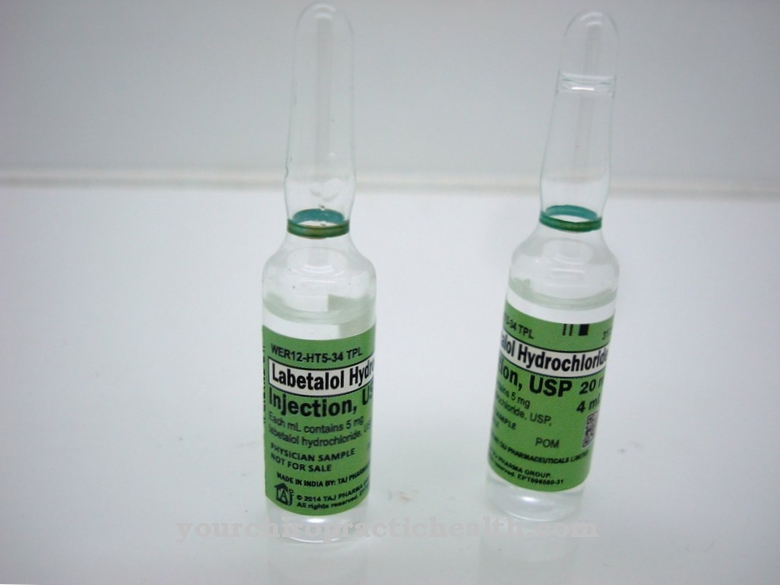
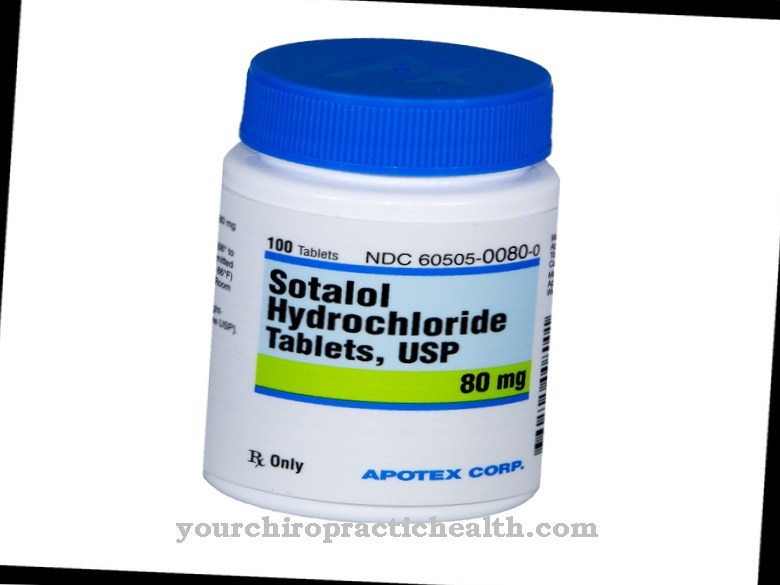

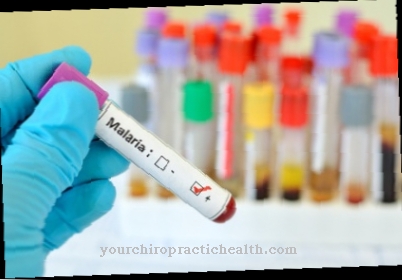
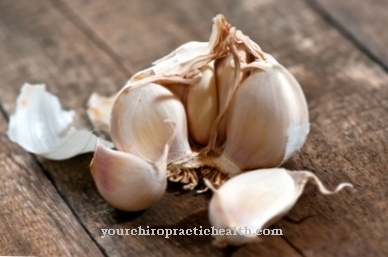

.jpg)



